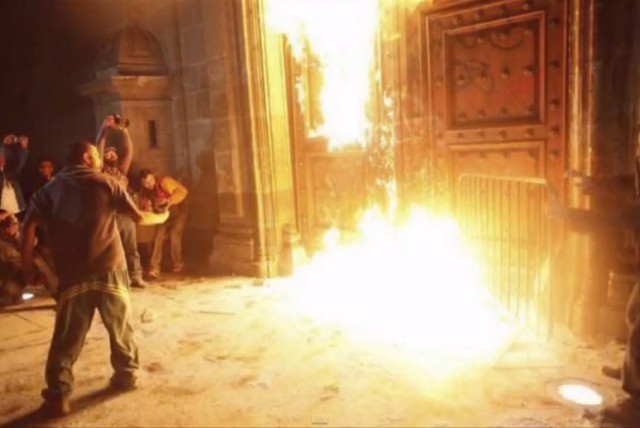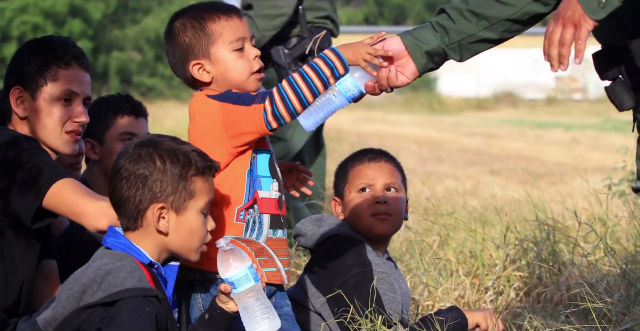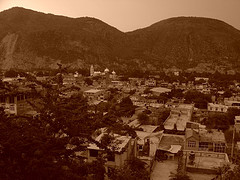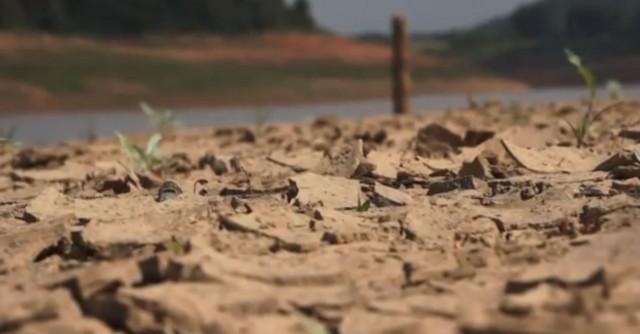
Latin America: Week in Review, Mexico, North America
Missing Iguala Students Incinerated, Attorney General Says, as Mexico Erupts in Protests
November 10, 2014 By Staff
Top Story — The 43 students missing since late September were killed and their remains incinerated, Mexico’s attorney general announced in a press conference Friday.
According to Murillo Karam, the students appear to have been handed over to members of a local drug gang by police in Iguala on Sept. 26. They were then bundled into trucks and killed, their bodies disposed of in a burning pit at a garbage dump in Cocula, near Iguala. Suspects told authorities they used gasoline and diesel fuel to burn the students overnight and into the following afternoon, and that they threw the resulting ashes and bone fragments into a local river.
Investigators recovered trash bags containing the students’ purported remains, acting on information from two suspects. Authorities have not confirmed how the students were killed, but witnesses reported that at least 16 succumbed to asphyxiation in a truck.
Murillo Karam ended the news conference with an off-the-cuff remark announcing that he was tired. His comment, “Ya me canse,” which translates roughly into “I’m tired,” or “I’ve had enough,” quickly became a rallying cry on the streets and social media. Protesters carried hand-made signs expressing their fatigue over corruption and narco-violence, while the hashtag #YaMeCanse was widely shared on Twitter.
In Guerrero, protesters on Saturday set fire to vehicles outside the governor’s office in Chilpancingo, while thousands in Mexico City gathered in the main plaza, the Zócalo. The mostly peaceful demonstrations in Mexico’s capital took a violent turn when a group of protesters set fire to the presidential palace’s wooden door.
Mexico’s President Enrique Peña Nieto, who condemned that act of vandalism, was not in the palace at the time, as he lives in a residence in another part of the city. Peña Nieto, who has been widely criticized for the pace of his government’s resposne to the case of the missing Iguala students, left on Sunday for a six-day diplomatic trip to China and Australia, despite demands that he cancel it to prioritize the investigation.
Headlines from the Western Hemisphere
North America
- Mexico announced on Thursday that it will hold a new auction for a contract to build a high-speed railway after it revoked the bid won by a Chinese-led consortium last week, sparking tension ahead of President Enrique Peña Nieto’s visit to China next week.
- A firm also owned by the parent company of the Chinese consortium stripped of the railway contract also built Peña Nieto’s house in Mexico City, a Mexican journalist wrote Sunday.
Caribbean
- Al Jazeera explores celebrations during Haiti’s International Day Against Homophobia, looking at the LGBT community’s struggle for visibility and acceptance in the country.
- Amnesty International has condemned Cuba’s fourth unexplained postponement of the trial of three Cubans arrested in 2012 during peaceful protests, saying they are unfair and may be politically motivated.
- The Robert F. Kennedy Center for Justice and Human Rights on Friday criticized the treatment of Haitian immigrants by authorities in the Bahamas, following a similar declaration regarding Haitians in the Dominican Republic, made by Amnesty International on the previous day.
Central America
- The New York Times takes an in-depth look at the experience of recent Honduran immigrant Lester Valladaras, a 15-year-old who like many other Latin American immigrants has found opportunity at a high school in Oakland, California.
- A member of the Garifuna Afro-Caribbean community jailed in Mexico for over five years is expected to return to his home country of Honduras, after publicizing the extensive torture and mistreatment he says he experienced while imprisoned.
- Guatemalan President Otto Perez Molina apologized on Sautrday to the indigenous Achi peoplem, many of whom who were displaced or killed during the construction of the Chixoy dam during the country’s civil war.
Andes
- An in-depth look by the Guardian at Colombia’s ongoing peace talks highlighted the potential for the International Criminal Court to overrule any agreement between the Colombian government and the FARC, a consideration which influenced President Juan Manuel Santos’ recent tour of the EU to garner support .
- Venezuelan authorities on Friday announced that a Colombian paramilitary leader accused of killing left-wing Venezuelan politician Robert Serra was arrested in Cartagena, and that they will seek his extradition.
- Bolivia’s interior minister on Friday announced that police in Santa Cruz seized a shipment of guns bound from the U.S. to Brazil, adding that Bolivia is being used as a transit point for weapon trafficking.
- A Peruvian congresswoman leading the investigation into a vast and corrupt network of officials in the state of Ancash said that the ring has pocketed at least $110 million in recent years.
Southern Cone
- Argentina’s President Cristina Fernández de Kirchner on Sunday left the hospital where she was treated for gastrointestinal distress, the third time this year an illness has raised concerns about the leader.
- Brazil’s military will hold drills in the Amazon this month, highlighting lingering concerns over the future potential for a violent clash over the rainforest’s abundant resources.
- Heavy rains in recent days have done little to replenish bone-dry reservoirs as a historic drought continues in the São Paulo area, where some have been enduring water rationing since February.
Image: Youtube
Subscribe to Today in Latin America by Email





1 Comment
[…] deputy police chief is a suspected member of Guerreros Unidos, the local drug cartel accused of murdering the students and incinerating their remains. Nava González was allegedly summoned from Cocula to nearby Iguala on Sept. 26, where he […]
Comments are closed.